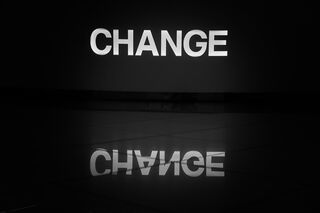Conformity
The Pandemic's Long-Term Effects on Attitudes
The generation whose youth was marked by a pandemic could change everything.
Posted April 13, 2022 Reviewed by Ekua Hagan
Key points
- Differences in attitudes tend to be generational because people are especially influenced by events that happen in their teens and 20s.
- Research shows people have a greater interest in work-life balance and marriage since the pandemic.
- Attitudinal shifts in today's teens due to the pandemic will eventually influence society at large.

This spring, I was teaching my first in-person social psychology class since before the start of the pandemic. When we began our discussion of conformity, I started with my usual question: "What do you think of when you hear the word 'conformity?' By a show of hands, how many of you generally regard conformity as a good thing, a bad thing, or a mix of both?" In prior semesters, all of my students raised their hands for "bad" or "mixed," with the majority of responses favoring "bad," and no one endorsing "good." In fact, the only student to ever raise his hand to indicate that conformity was good was the exception that proved the rule. In a decade of teaching this course, only an international student from China, a highly collectivist society in which conformity is more common and seen as more socially desirable than it is in individualistic cultures such as the U.S., had ever responded favorably to this question.
So, in this spring 2022 class, I returned to my old chestnut of a question, and for the first time, not just one student, but about a quarter of the class raised their hands for "good." Of course, this is just an anecdote, involving just one group of students, and the underlying causes of such attitudinal changes are unclear. But I could not help but think that such a striking shift in the attitudes of my students might be due to the dramatic social changes surrounding the pandemic. It appears as though the pandemic swayed many people's views to seeing collective action and engaging in behaviors for the good of the larger group to be especially valuable.
This leads me to a larger, and potentially more pervasive, question: Have the unprecedented societal changes that occurred during the pandemic resulted in an embrace of conformity that would have been highly improbable only a few years ago? In other words, have the negative connotations of "conformity," so prevalent in the culture in which I was raised, slipped away?
It must be acknowledged that this kind of attitudinal change could be fleeting. At this time, we are still in the midst of the pandemic, and the demonstration I just described took place in a classroom full of masked students. However, the research on the impact of historical events on attitudes suggests that this is only the beginning of a potentially dramatic social shift.
It is well-documented that younger generations tend to have more liberal attitudes than their elders. While attitudes may swing toward more conservative views over time, the more liberal attitudes among the young are mostly attributable to a cohort effect. That is, individual people’s attitudes don’t change all that much, and instead, the age differences we see are generational. This is because we are especially influenced by events that occur in our teens and 20s. For example, research suggests that people’s lifelong voting habits are influenced by who was president when they turned 18, and tend to be shaped by the important political events that occurred in their youth.
The effects of COVID-19 on teens and young adults
The COVID-19 pandemic is a major historical event, affecting every country in the world, and the life of every individual. Although it has also likely had an impact on most people's attitudes, people who are now in their teens and 20s will be affected the most. Their lifelong attitudes are being shaped by what's happening now. The question is, how?
If attitudes like the pro-conformity stance I observed in my classroom become more common, how will this affect people's political beliefs? Will they be more likely to support government-sponsored social programs, or to allow the government to have more authority over people's lives? Will there also be a backlash, with a subset of today's youth becoming especially individualistic and anti-authority?
The pandemic has made many people re-prioritize what they want from life. We are seeing a shift in people’s workplace attitudes, with employees wanting more work-life balance. This may be especially marked among the younger generation. Studies of singles have shown that their desire for a romantic partner who is interested in getting married has increased since before the pandemic. Will this usher in a new era of family values and a desire for stability among today's youth as they enter adulthood?
We don't know quite how this pandemic will affect the attitudes of today's young people, but one thing we can be relatively certain of is that it will leave a mark that will shape their attitudes for decades to come. An event as radical as the pandemic could cause radical shifts. This also means that as today's youth become tomorrow's political leaders, teachers, and CEOs, that influence will expand, ultimately having a major impact on everyone.


